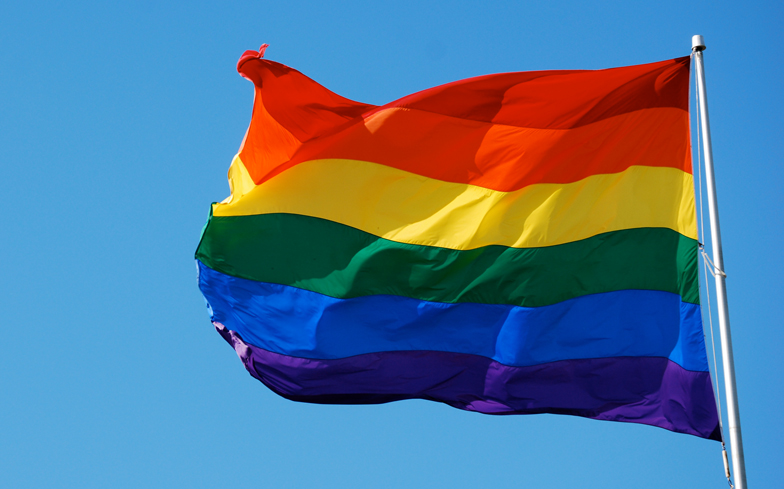
In a historic ruling, a Japanese court ruled it is ‘unconstitutional’ for the government to not allow same-sex couples to get married.
On Wednesday (March 17), The Sapporo District Court ruled that the Japanese public should have the right to get married.
The ‘groundbreaking’ ruling is a landmark victory for the country as same-sex marriages are not legally recognised as Article 24 of Japan’s constitution defines marriage as “the mutual consent of both sexes”.
Judge Tomoko Takebe said in the historic ruling that preventing same-sex marriages violates Article 14 of the Japanese constitution, which bans discrimination based on “race, creed, sex, social status or family origin.”
Following the ruling supporters and plaintiffs displayed pride flags and banners in support of the ruling.
The outcome of the court was achieved during a hearing involving three same-sex couples who were seeking government financial compensation as they have been unable to get married.
The courts rejected the proposal and denied any compensation to the couples. Without a legally binding marriage, couples are unable to inherit their partner’s assets such as shared property or land and have no guardian rights of their partner’s children or family.
The six plaintiffs (two male couples and one female couple), asked for 1 million yen (roughly $9000) per person in financial damages, according to the Japan Times.
While the courts ruling is not legally binding, it is the country’s first-ever judicial ruling on marriage equality and offers vital groundwork for a potential parliamentary debate, which could legalise same-sex marriage later on.
Speaking on the ruling, Suki Chung, Regional Campaigner at Amnesty International, said:
“The court’s decision is a groundbreaking step for same-sex couples in their pursuit of equal rights.
“The ruling can set an important precedent for similar cases filed by other same-sex couples in the country.
“Japan has been lagging behind in fulfilling its obligations to respect and protect the human rights of LGBTI people. A bill on promoting ‘understanding’ of LGBTI people has dragged on for years but is yet to become law.
“The government must stop delaying and undertake a thorough review of all related laws, policies and practices to end the discrimination same-sex couples face in all walks of life.”
According to AP News, Chief Cabinet Secretary Katsunobu Kato informed reporters that the government disagreed with the recent ruling.
The Chief Cabinet Secretary said the government seeks to achieve a society more tolerant to diversity, but he did not express any further comments on the outcome of the court cases.
Japan’s government does not yet legally recognise same-sex marriage. Amnesty International UK is calling for the government to put forward legislation to eliminate discrimination based on sexual orientation, gender identity and intersex status.
The non-profit organisation launched a global petition in support of LGBTQ+ community in Japan to raise awareness of the on-going advocacy for rights.
In 2019, Taiwan became the first country in Asia to legalise same-sex marriage.
Similarly, in July 2020, Thailand made history as the first Southeast Asian country to legalise same-sex civil partnerships.
Thailand has approved a draft bill that will legalise same-sex civil partnerships and give greater recognition to same-sex couples.
The Civil Partnership Bill avoids the term “marriage” but will allow same-sex couples the right to jointly own property, adopt children and pass on inheritances. It would be a first in any Southeast Asian country if passed into law.
In September 2020, Kyoto became the latest Japanese city to bring in a ‘partnership system’ that recognises same-sex couples.
The ‘partnership system’ in Japan stops short of allowing same-sex marriage, but affords same-sex couples certain benefits given to married couples, like moving into public housing as a couple, hospital visitation rights and even certain employment benefits.
Great news in #Japan! A Japanese district court has ruled that not allowing same-sex couples to marry is “unconstitutional” as it breaches the right to equality. This is the first ruling of its kind on the legality of same-sex marriages in Japan – a positive step forward. 🏳️🌈 pic.twitter.com/R4vhilsC93
— Amnesty International (@amnesty) March 17, 2021



